September marks Healthy Aging Month, a time to focus on wellness practices that help older adults live vibrant, independent lives. While many people think of exercise and nutrition when it comes to healthy aging, vision health is just as important. Regular eye exams are crucial for detecting and managing eye conditions in elderly patients before they interfere with daily activities.
As the years go by, vision naturally changes. Some shifts are normal, but others may signal more serious concerns. In this article, we’ll explore the common eye conditions in elderly patients, the earliest eye ageing signs, and how proactive care can protect long-term vision.
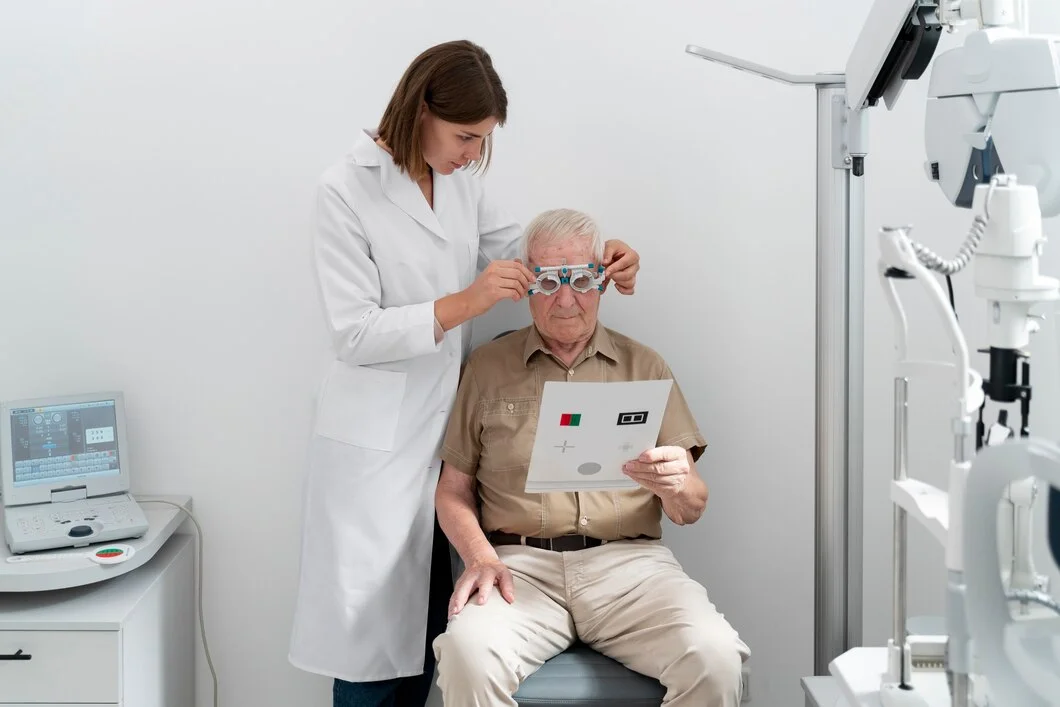
The Importance of Eye Health in Aging
Vision is vital in preserving autonomy and quality of life. Good vision helps seniors read, drive, recognize faces, and move independently within their environment. Age-related vision changes can go undetected until symptoms arise. If left untreated, they can cause falls, isolation, and permanent vision loss.
This is why regular exams are important to detect vision changes for not only prescription updates but also to screen for aging-specific common eyesight problems in seniors that require specialized treatment.
Common Eye Conditions in elderly patients
As we age, we are at a greater risk for several conditions. The most prevalent eyesight problems in seniors are:
Cataracts – when the lens of the eye becomes cloudy and causes blurry or dim vision.
Glaucoma – where damage has occurred to the optic nerve, related to high pressure inside the eye.
Age-related macular degeneration (AMD) – a slow decline in central vision, affecting the ability to read fine print or recognize faces.
Diabetic retinopathy – when damage to the blood vessels in the retina due to diabetes changes vision.
Dry eyes – Among common eye conditions in elderly patients that lead to irritated and blurry vision.
By better understanding these conditions, seniors and caregivers will be more able to detect early signs of aging eyes and recognize the need to refer for consultation.
Recognizing Eye Ageing Signs Early
Most eye conditions in elderly patients develop slowly, making early detection difficult without exams. However, certain eyesight problem symptoms should raise concern:
- Trouble seeing in low light
- Increased sensitivity to glare
- Difficulty focusing on near or far objects
- Double vision or distorted images
- Frequent changes in eyeglass prescription
- Seeing halos around lights
These are not just inconveniences; they may be warning signs of underlying eyesight problems. If you or a loved one notices these changes, it’s time to schedule an exam with an eye care professional.
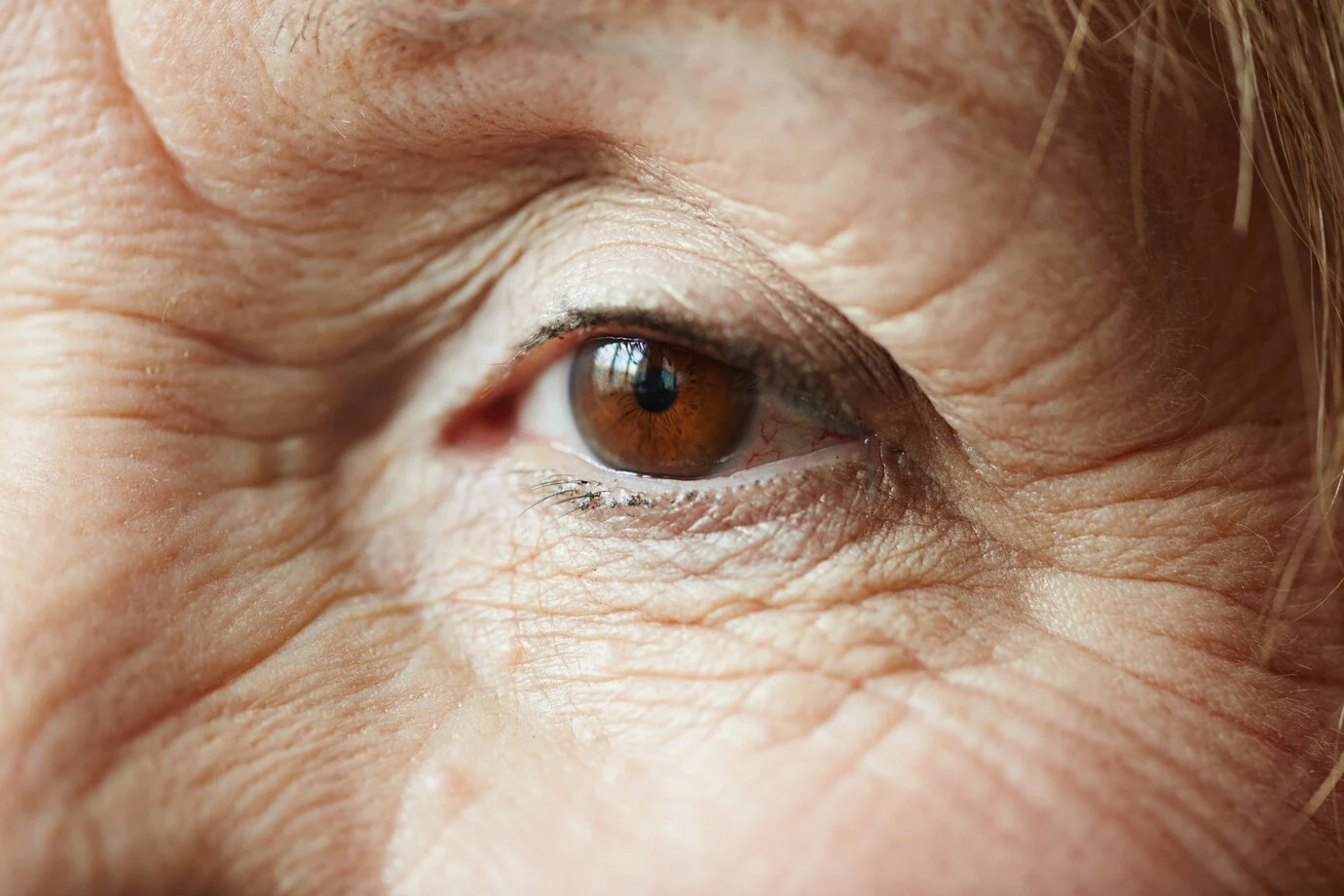
The Connection between Eye Health and Overall
The eyes can also provide clues regarding overall health. Routine exams often identify signs of systemic illnesses, such as diabetes, high blood pressure, and high cholesterol, before patients exhibit other symptoms. Eye exams are supportive of not only vision but overall wellness, making them an important part of healthy aging.
Dealing with Age-Related Vision Problems
The great news? Most of the age-related eye issues people deal with can be well managed or successfully treated if caught early. Aging eyesight treatment includes:
Prescriptions for glasses or contacts to correct refractive errors.
Cataract surgery - one of the safest and most successful surgeries in the world.
Management of glaucoma with medicated drops, laser treatments, or surgery.
Lifestyle improvements with or without medications including a diet full of leafy greens, omega-3 fatty acids, and antioxidants for retinal health.
Dry eye treatments ranging from artificial tears to new technology in the office.
Many seniors have healthy, functional vision well into their senior years and beyond with proactive care.
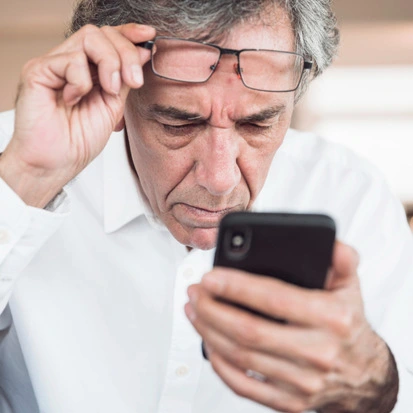
Eye Exams: The First Line of Defense
How often should I have my eyes examined? For adults age 60 and over, experts recommend a thorough (comprehensive) eye exam every 1-2 years. If your doctor has prescribed medication for diabetes, high blood pressure, or you have a family history of glaucoma or macular degeneration, they may recommend a visit every 6 months or 1 year.
In general, a thorough eye exam includes evaluating your sharpness of vision, looking for signs of age-related changes in your eyes, assessing the fluid pressure in your eyes, as well as evaluating your retina and optic nerve for changes that could warrant treatment.
By taking this thorough approach, an eye doctor can ensure the early diagnosis and timely treatment of aging vision.
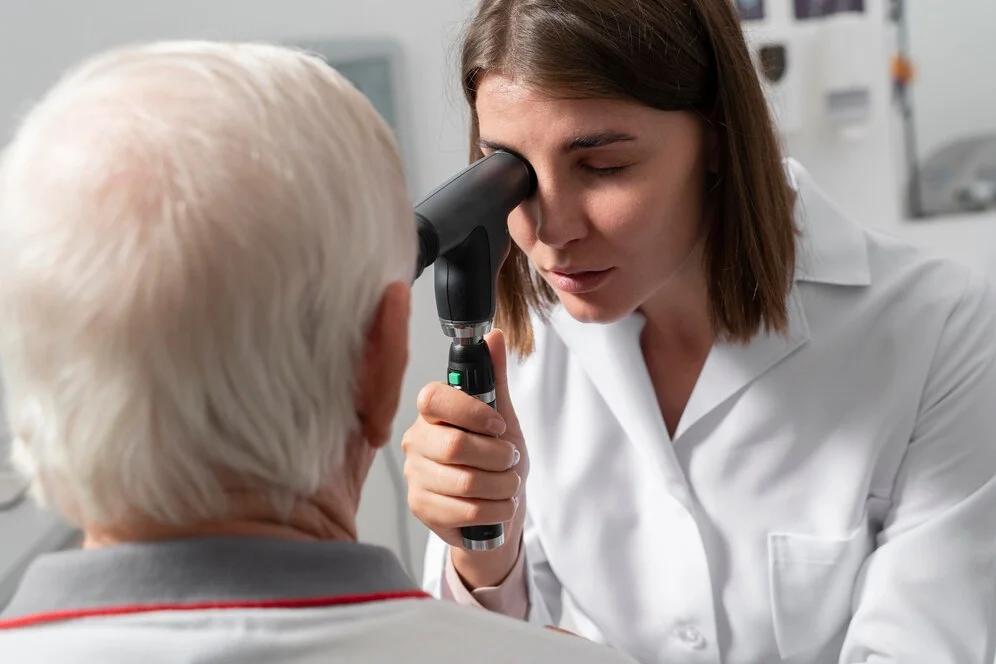
The Consequences of Ignoring Vision Problems
Not getting your eyes checked often if you are older can have serious repercussions with far reaching effects. For example, low vision problems increase the likelihood of falls, injuries, and can reduce your ability to live independently, as well as your ‘socialness.’ Additionally, there are studies revealing that older adults with age related vision issues, who have not had their eyesight corrected, exhibit higher depression levels.
By helping tackle eye conditions in elderly patients, families can help protect not only their loved one’s eyesight problems, but all aspects of their quality of life.
Tips for protecting senior vision:
In addition to regular exams and treatment, there are things that seniors can do every day to promote eye health. Here are some habits that seniors can adopt to help prevent eye conditions in elderly.
Wearing a pair of UV-blocking sunglasses will help mitigate cumulative sun damage.
Staying hydrated will help alleviate dry eyes.
Quitting smoking significantly increases the chances of avoiding age-related macular degeneration (AMD) and cataracts.
Regular exercise can help promote blood circulation to the eyes.
Visiting the doctor regularly to help manage chronic diseases like diabetes and hypertension.
When these lifestyle modifications combine with appropriate screening exams, seniors are more positioned to avoid common eye conditions in elderly stages.
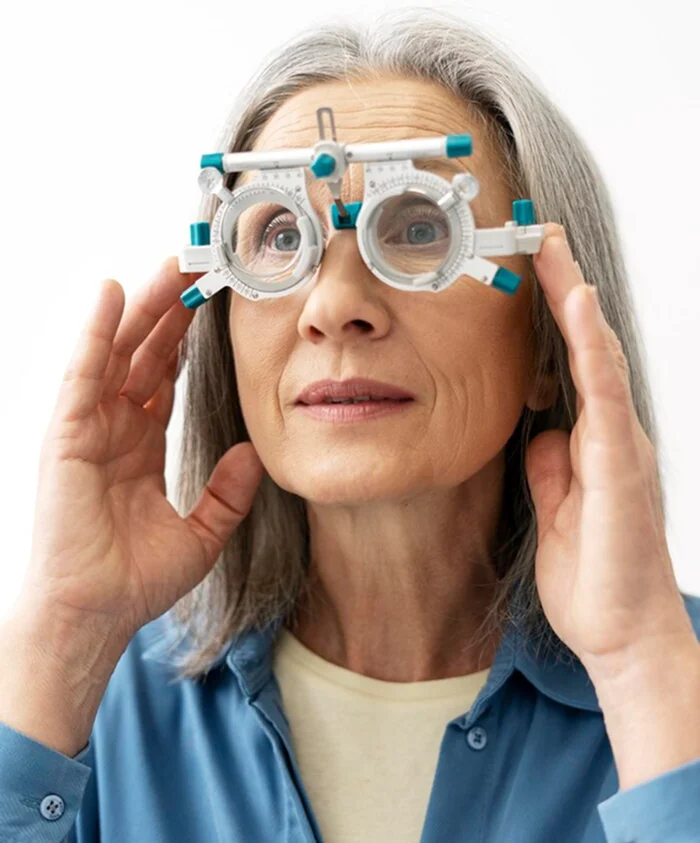
Conclusion
With September being Healthy Aging Month, it's a good reminder that being active, engaged, and independent requires good vision as we get older. Changes to our vision as we age are normal, however many eye conditions in elderly patients can be treated if identified early. The best defense against common eye-related issues related to aging, ranging from cataracts to glaucoma, is a proactive approach beginning with regular eye exams and treatment when eyesight changes occur.
At Elite Eye Care, we are committed to helping seniors by providing comprehensive eye exams and utilizing advanced diagnostic tools to develop personalized treatment plans. By identifying the signs of eye aging early, which can then be treated successfully, we enable older adults to continue their pursuit of life to the fullest with clear and confident vision.
Contact us now to book a consultation!
